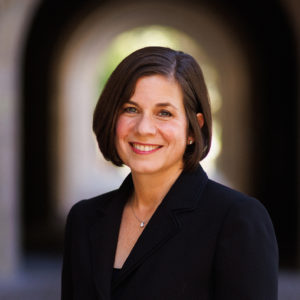In New Paper, SLS’s Michelle Mello Explores Methods for Screening Late-Career Physicians to Ensure Patient Safety
As the U.S. physician workforce ages, healthcare organizations are under increasing pressure to address the potential risks associated with cognitive and physical decline in late-career physicians (LCPs), often defined as those 65 and older. In a new paper published in the Annals of Internal Medicine, co-author Michelle Mello, professor of law and health policy at Stanford Law School (SLS) and Stanford University School of Medicine, sheds light on the policies that some hospitals have implemented to screen aging physicians. The paper also offers recommendations to improve fairness, effectiveness, and physician acceptance of these programs.

“Ensuring Safe Practice by Late Career Physicians: Institutional Policies and Implementation Experiences” examines the approaches taken by 29 U.S. healthcare institutions, the majority of which mandate screening assessments once physicians reach a specific age, typically around 70. Although older physicians bring extensive clinical experience to patient care, they are at heightened risk for cognitive and sensory decline, as well as diminished knowledge currency and adherence to standards of care, according to the paper. Also, growing evidence indicates that, on average, patients treated by LCPs have worse clinical outcomes and are more likely to file complaints.
Lessons Learned
Assessments of LCPs, which vary by institution, often include physical exams, neuropsychological testing, and feedback from peers and colleagues. While all institutions in the study share a commitment to patient safety, the study highlights inconsistencies in how screening results are handled and in the availability of procedural safeguards for physicians. Some institutions have adopted structured appeals processes and clear confidentiality guidelines, but many rely heavily on internal discretion, which can introduce issues around transparency and fairness, according to the study.
“Little is known about the LCP policies in use today and there have been controversies surrounding some of them, including allegations of age discrimination,” said Mello, who co-wrote the paper with medical doctors and public health scholars from the University of Washington, Harvard Medical School, and Intermountain Health. “We reviewed a range of LCP policies to better understand how hospitals can balance patient safety protection with physicians’ own interests, including autonomy and fair treatment. We also wanted to understand what lessons have been learned about cultivating physician support for LCP policies and addressing practical challenges that arise during adoption and implementation.”
Reframing for Greater Physician Support
Key among the authors’ recommendations is the need for a standardized, fair, and transparent approach to LCP screening. The paper advocates for policies that clearly define guidelines for interpreting test results and outline steps for physicians to appeal decisions. Additionally, the authors suggest reframing these programs as supportive initiatives rather than as punitive actions targeting age. Presenting screening as a proactive measure to help physicians maintain high-quality patient care and plan for successful career transitions can foster acceptance and reduce concerns about discrimination, they say.

The study also underscores the importance of building physician support through early and open dialogue. The authors found that institutions with successful screening programs often engaged physicians in the policy design process and provided detailed explanations about how the assessments protect patient safety. This open approach helps build trust and reduces resistance, which can otherwise lead to preemptive retirements among LCPs who feel singled out by age-specific policies, they write.
The paper also confronts some of the practical challenges that HCOs face, such as logistical difficulties in arranging assessments and concerns over the predictive accuracy of current screening tools. Not all institutions, for instance, have easy access to specialized neuropsychological assessments, and others struggle with the financial and logistical burden of implementing screening for large staffs. The report suggests that better resource sharing across healthcare institutions could help address these challenges, making it easier for hospitals to adopt consistent standards that promote fairness and reliability.
“We hope these findings will serve as a valuable guide for institutions seeking to implement effective and equitable LCP screening programs,” Mello said.
About Stanford Law School
Stanford Law School is one of the nation’s leading institutions for legal scholarship and education. Its alumni are among the most influential decision makers in law, politics, business, and high technology. Faculty members argue before the Supreme Court, testify before Congress, produce outstanding legal scholarship and empirical analysis, and contribute regularly to the nation’s press as legal and policy experts. Stanford Law School has established a model for legal education that provides rigorous interdisciplinary training, hands-on experience, global perspective, and focus on public service, spearheading a movement for change.
